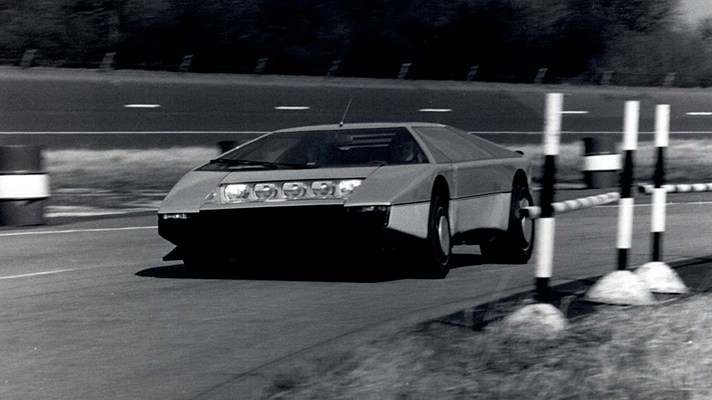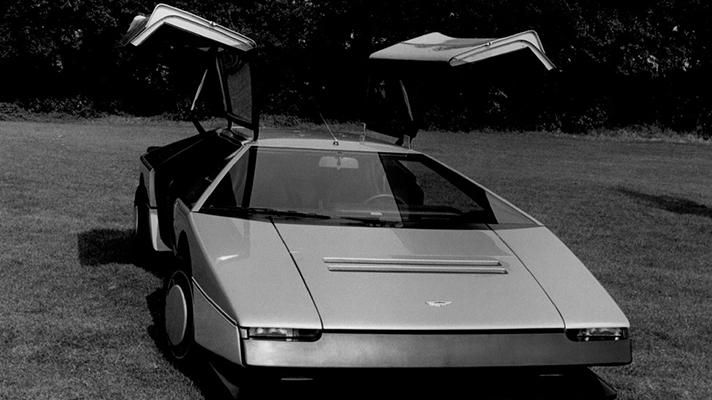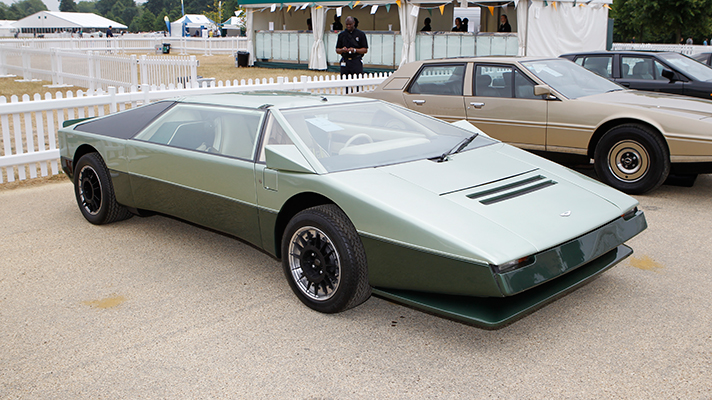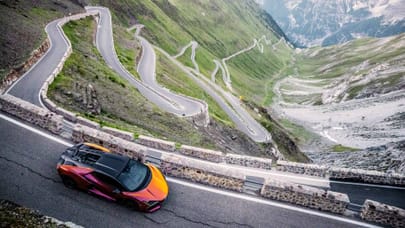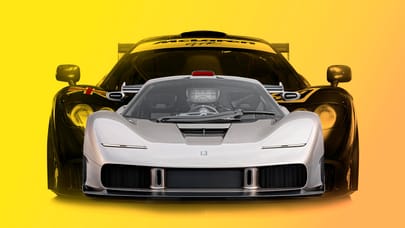
Aston’s 237mph one-off supercar
A dog. Not just any old dog, but a wrinkled, droopy-lipped mutt with a heavy-set frame and an adorable face. A rich heritage of adopting names from prestigious hillclimbs, blades, a lucky leaf, historic racing circuits and most famously, the initials of the man who turned the company around, was clearly thrown out of the window for Aston Martin's 1980 ‘Project K.901'.
Chiefly because they named it ‘Bulldog'. And be in no doubt, this was one seriously quick Aston Martin.
You see, last weekend at Kensington Park Gardens - as you've no doubt seen on TopGear.com - Aston Martin celebrated its 100th anniversary. 150 Aston Martin models from past and present rumbled into central London, just a stone's throw away from the company's inception at Henniker Mews all those years ago, where cycling buddies Lionel Martin and Robert Bamford first began knocking out hillclimb specials, starting the company that we know today.
And among the cars on display, including the oldest surviving Aston Martin (the A3), a brace of V8 Vantages, DB7s, Zagatos, Bond cars, the CC100 and the lovely One-77, was a brutish, blocky bruiser from the 80s that stuck its pug-nosed face into the crowd without apology. Clearly, this was no ordinary Aston Martin.
Built as a concept car in 1980, Project K.901 - or ‘Bulldog' - was designed to show off the capabilities of Aston Martin's then new external engineering facility at Newport Pagnell. It was going to be the fastest car... in the world.
Well, in Britain and Europe. You see, underneath that controversially wedge-shaped exterior, sketched out by William Towns - the same man who designed the brutish, original Aston DBS from the 60s and the Lagonda - sat the heart of Godzilla. It proudly sported an Aston Martin 5.3-litre V8, mounted in the middle, with a pair of Garrett AirResearch turbochargers strapped to its considerable banks that produced in excess of 700bhp.
It was 15ft 6in long, uncompromisingly wide, and just 43in tall, while a pair of electro-hydraulically operated gullwing doors actually cut into the floor of the car; a clear indication that grace, dignity and subtlety had been ushered quietly out of the Newport Pagnell facility's back door. Possibly tied up and beaten too, for good measure.
AM managing director at the time Alan Curtis told the assembled press Bulldog was proof that "Aston Martin can build the ultimate road-going supercar".
Where was the proof? At a shakedown test at the MIRA track, it recorded a top speed of ‘just' 192mph, but using a bit of Top Gear maths, the Aston boffins reckoned on a theoretical top speed of 237mph. Seeing as this was never tested, we'll, erm, skip over the reality of such a feat, but nevertheless, it was ruddy quick indeed. 0-60mph took just over five seconds, too.
Sadly, a planned production run of between 15 and 25 units never materialized, what with Aston Martin facing bigger issues, so the left-hand-drive, wedge-shaped monster, complete with its techno-80s touchtronic LED interior and dash and five lights hidden under the bonnet and big power, remains a complete one-off. It was sold in 1984 to a Middle Eastern buyer for a reported £130,000 in cash, but is worth many many more thousands today.
Oh, and that dog reference? Not only was it named after Curtis' Scottish Aviation Bulldog plane he regularly flew, but inside the factory, it was also nicknamed ‘K-9', Dr Who's famous robotic dog. Good boy.
Top Gear
Newsletter
Thank you for subscribing to our newsletter. Look out for your regular round-up of news, reviews and offers in your inbox.
Get all the latest news, reviews and exclusives, direct to your inbox.
Trending this week
- Car Review
BMW iX3




